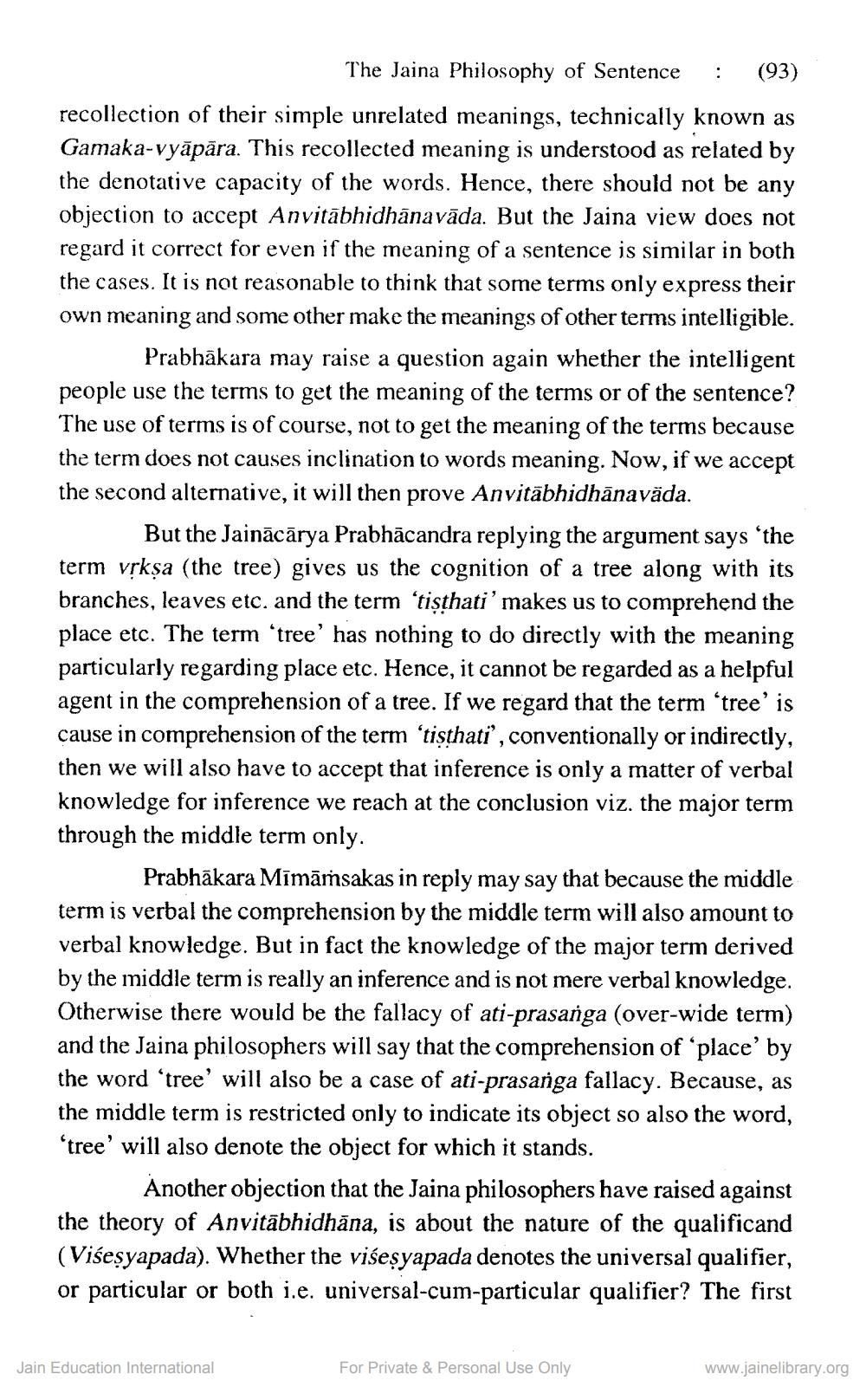________________
The Jaina Philosophy of Sentence : (93) recollection of their simple unrelated meanings, technically known as Gamaka-vyāpāra. This recollected meaning is understood as related by the denotative capacity of the words. Hence, there should not be any objection to accept Anvitābhidhānavāda. But the Jaina view does not regard it correct for even if the meaning of a sentence is similar in both the cases. It is not reasonable to think that some terms only express their own meaning and some other make the meanings of other terms intelligible. Prabhakara may raise a question again whether the intelligent people use the terms to get the meaning of the terms or of the sentence? The use of terms is of course, not to get the meaning of the terms because the term does not causes inclination to words meaning. Now, if we accept the second alternative, it will then prove Anvitābhidhānaväda.
'the
But the Jainācārya Prabhācandra replying the argument says term vṛkṣa (the tree) gives us the cognition of a tree along with its branches, leaves etc. and the term 'tişthati' makes us to comprehend the place etc. The term 'tree' has nothing to do directly with the meaning particularly regarding place etc. Hence, it cannot be regarded as a helpful agent in the comprehension of a tree. If we regard that the term 'tree' is cause in comprehension of the term 'tisthati', conventionally or indirectly, then we will also have to accept that inference is only a matter of verbal knowledge for inference we reach at the conclusion viz. the major term through the middle term only.
Prabhakara Mīmāmsakas in reply may say that because the middle term is verbal the comprehension by the middle term will also amount to verbal knowledge. But in fact the knowledge of the major term derived by the middle term is really an inference and is not mere verbal knowledge. Otherwise there would be the fallacy of ati-prasanga (over-wide term) and the Jaina philosophers will say that the comprehension of 'place' by the word 'tree' will also be a case of ati-prasanga fallacy. Because, as the middle term is restricted only to indicate its object so also the word, 'tree' will also denote the object for which it stands.
Another objection that the Jaina philosophers have raised against the theory of Anvitābhidhāna, is about the nature of the qualificand (Viśeṣyapada). Whether the viseṣyapada denotes the universal qualifier, or particular or both i.e. universal-cum-particular qualifier? The first
Jain Education International
For Private & Personal Use Only
www.jainelibrary.org




